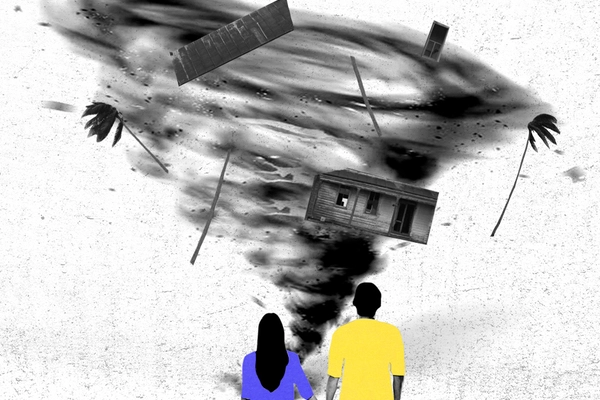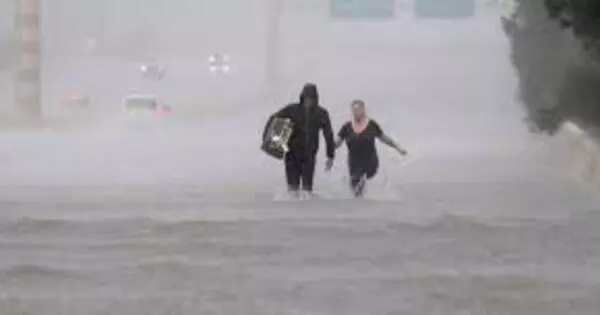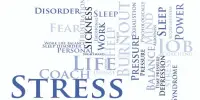Natural disasters can actually bring married couples closer together, at least temporarily, according to a study of couples in the Houston area before and after Hurricane Harvey. This surprised researchers because previous research on everyday stressors found that couples often experience ‘stress spillover’ in their relationships, which can reduce their satisfaction with their relationships.
Although natural disasters can destroy homes and infrastructure, they can also bring married couples closer together, at least temporarily. That’s according to a groundbreaking study conducted by researchers at The University of Texas at Austin on couples in the Houston area before and after Hurricane Harvey.
The study, which was published in the journal Psychological Science, has implications for how to best assist families as they deal with various types of stressors. Before Hurricane Harvey hit the Texas coast in August 2017, the research team had already surveyed 231 newly married couples about their relationship satisfaction. Researchers saw the hurricane as a unique opportunity to track relationship dynamics in the aftermath of a natural disaster. It had never been done before to conduct a relationship study using data from before and after a natural disaster.
A natural disaster can bring things into sharp focus. When people are jolted out of their daily stresses, they realize how important their partner is to them. If couples can shift their perspective in a similar way without having to go through a natural disaster, there may be therapeutic applications to this.
Hannah Williamson
“We originally set out to study the effects of everyday stressors, such as financial problems and the transition to parenthood, on couples in their early years of marriage,” said Hannah Williamson, lead author of the study and assistant professor of human development and family sciences at The University of Texas at Austin. “When the hurricane struck in the middle of the study, we were able to examine the effects of a major acute stressor. Unfortunately, natural disasters such as hurricanes and wildfires are affecting an increasing number of people.”
According to the study, couples experienced a significant increase in relationship satisfaction in the immediate aftermath of the hurricane. This surprised researchers because previous research on everyday stressors found that couples typically experience “stress spillover” in their relationships, which can reduce their satisfaction with their relationships.

“Based on previous research, we expected to see people who were happy with their relationships prior to the hurricane to be even happier after the hurricane, and people who were unhappy to be even more unhappy,” Williamson said. “We actually saw the greatest increases in relationship satisfaction among couples who were the most unhappy prior to the hurricane.”
Every year, both man-made and natural disasters affect millions of people. Explosions, earthquakes, floods, hurricanes, tornadoes, and fires are examples of disasters. In a disaster, you risk death or serious bodily harm. You could also lose your home, belongings, and community. Such stressors put your emotional and physical health at risk.
Stress reactions following a disaster resemble those seen following any type of trauma. Disasters can elicit a wide range of emotional and physical responses. You may also react to problems that arise following the event, as well as triggers or reminders of the trauma.
The researchers also examined how bad the hurricane experience was for couples, asking them about damage to their homes, financial losses and more. It turns out these differences in experiences did not factor into the results in relationship satisfaction.
None of this implies that couples experiencing marital problems should begin making plans to spend hurricane season in Florida right away. The researchers noted that the increase in relationship satisfaction was not permanent, and couples’ satisfaction levels returned to pre-hurricane levels within a year.
“A natural disaster can bring things into sharp focus. When people are jolted out of their daily stresses, they realize how important their partner is to them “According to Williamson. “If couples can shift their perspective in a similar way without having to go through a natural disaster, there may be therapeutic applications to this.”
















